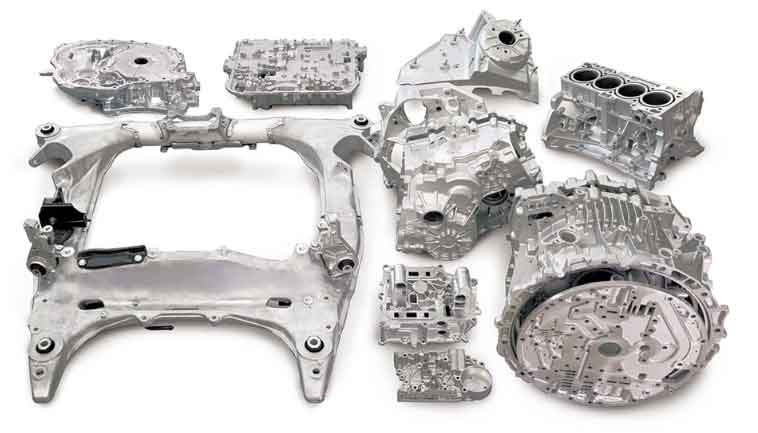Die casting offers numerous advantages that make it highly suitable for the automotive industry. Here are some key advantages of die casting in automotive applications:

- High Precision and Dimensional Accuracy: Die casting provides excellent dimensional accuracy and high precision, ensuring consistent part quality. This is crucial in the automotive industry where tight tolerances and precise fitment are essential for reliable and efficient performance.
- Complex Geometries: Die casting allows for the production of complex and intricate geometries with tight tolerances. This enables the creation of automotive components with intricate shapes, such as engine components, transmission parts, and suspension components.
- Lightweight Design: Die casting offers the ability to create lightweight automotive components. Aluminum, one of the commonly used materials in die casting, provides a high strength-to-weight ratio. By utilizing lightweight die-cast components, vehicles can achieve improved fuel efficiency, reduced emissions, and enhanced overall performance.
- High Production Efficiency: Die casting is a highly efficient manufacturing process, capable of producing high volumes of parts at a rapid rate. The use of automated systems, such as robotic handling and high-pressure injection, enables fast cycle times and increased production output.
- Cost-Effective Production: Die casting can be cost-effective for automotive manufacturers, particularly for high-volume production. The efficiency of the process, combined with the ability to create net-shaped parts with minimal post-processing, reduces overall production costs.
- Excellent Surface Finish: Die-cast automotive components can achieve a smooth and aesthetically pleasing surface finish, eliminating the need for additional surface treatments or refinishing. This not only improves the visual appeal of the components but also reduces post-casting processing time and costs.
- Material Versatility: Die casting supports a wide range of materials suitable for automotive applications, including aluminum, magnesium, and zinc alloys. Each material offers unique properties such as strength, corrosion resistance, and heat dissipation, allowing manufacturers to select the most appropriate material for specific automotive components.
- Part Integration and Consolidation: Die casting allows for the integration and consolidation of multiple parts into a single component. This reduces assembly time, simplifies the manufacturing process, and enhances overall product reliability by reducing the number of potential failure points.
Die casting has revolutionized the production of automotive components by providing cost-effective, high-quality, and lightweight solutions. It enables automakers to achieve better performance, fuel efficiency, and design flexibility while meeting stringent quality standards. As the automotive industry continues to evolve, die casting will play a vital role in meeting the industry’s demands for efficient and reliable manufacturing processes.
